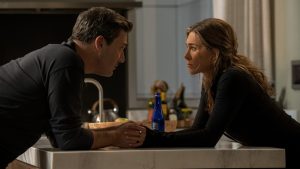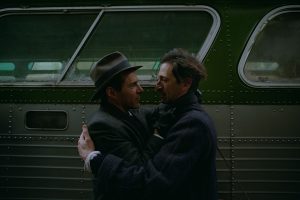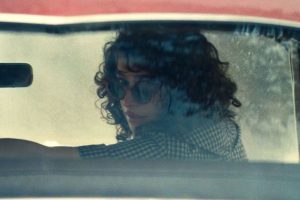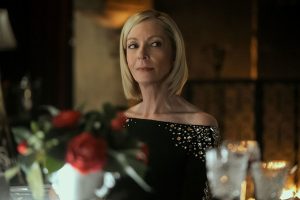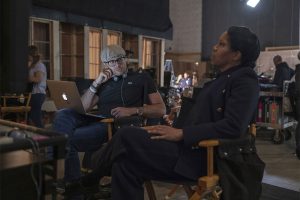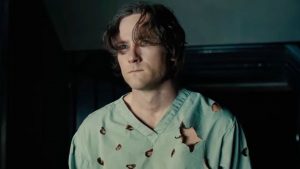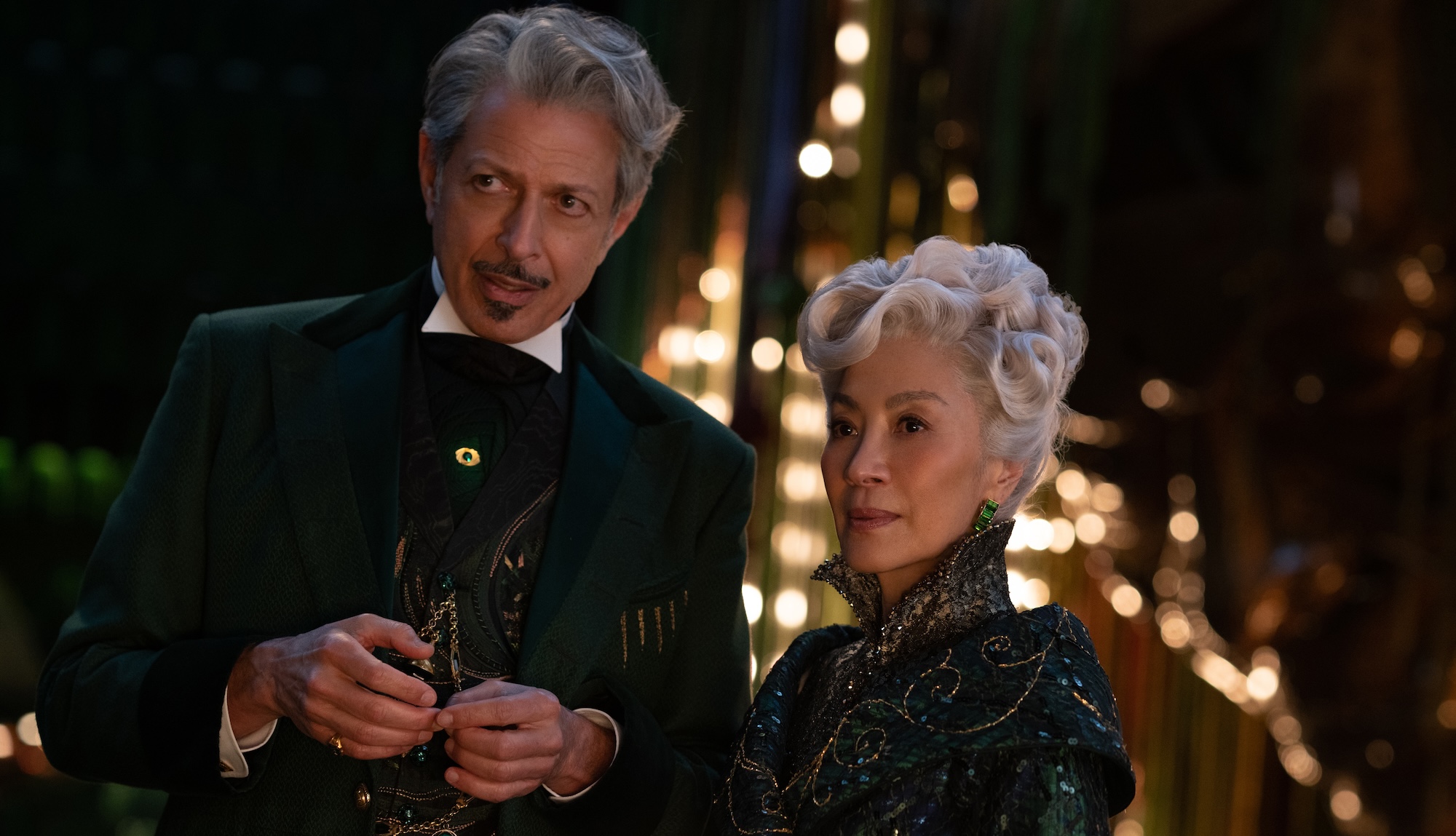
When Wicked opened on Broadway 21 years ago, famed New York Times critic Ben Brantley provided the musical with one of his typically backhanded notices. While giving high marks for Kristin Chenoweth’s undeniable talent in creating Galinda, as well as specific elements of the production like Eugene Lee’s sets, the Times arbiter remained cool toward the musical’s songs, book, and even its allegorical ambitions.
“As a parable of fascism and freedom, Wicked so overplays its hand that it seriously dilutes its power to disturb,” Brantley wrote when comparing the show’s vividly technicolor subtexts to the more opaque leanings of L. Frank Baum’s original Oz novels. “Wicked [by comparison] wears its political heart as if it were a slogan button,” Brantley ultimately sniffed. Elsewhere he likened the story’s revisionist image of Elphaba, the so-called Wicked Witch of the West, to “privileged student dissidents from the 1960s and ‘70s who traded beer blasts for Molotov cocktails.”
It is not impossible to understand where the theater critic was coming from back then. While I’ve long respected Wicked’s musicality, a number of Brantley’s critiques for the show ring true. But lamenting a musical for being too obvious while crafting a metaphor about fascism was never one of them.
There is no denying Wicked is heavy-handed in its allusions when Professor Dillamond (the talking goat voiced by Peter Dinklage in the movie) discovers menacing graffiti on his chalkboard which reads, “Animals Should Be Seen, Not Heard.” But even 20 years ago, I recognized the importance of reminding the next generation about the insidious way hatreds and bigotries can be manipulated like something out of 1930s Germany. Or closer to home.
In truth, Wicked’s allusions to European fascism, or for that matter segregationist Jim Crow laws throughout the American South, were part and parcel for 2000s era children’s stories. Just as Elphaba and Galinda’s Shiz University resembles Hogwarts in look and function, so too does its politics match the autocratic rise and institutional corruption of Voldemort in the Harry Potter novels. Suzanne Collins’ The Hunger Games, meanwhile, came a little later but still tapped into the same zeitgeist in a more direct way with its dystopian vision of North America’s future being ruled by a literal dictator who controls the population through fear and entertainment.
Meanwhile on the geekier side of culture, the X-Men movies of that decade, like the comic books of the previous 20 years, were deeply rooted in drawing parallels between its fictional persecuted underclass of mutants and the still-living memory of the Holocaust, right down to making the films’ sympathetic antagonist a Holocaust survivor who remains wary of men in authority who wish to divide folks between “us and them.”
In this pop culture landscape, Wicked’s politics were as common as they were unremarkable. Of course the thing to fear remains a strongman who would scapegoat a literal goat. The idea of it actually occurring in your everyday life might seem so foreign as to snark about those ‘60s dissidents who overdid the good fight—you know, at least if you ignore how even back then the Republican administration in the White House was launching a successful reelection campaign built around stirring up fear of gay people marrying in swing states like Ohio.
Which brings us to November 2024, and the strikingly more urgent context which Jon M. Chu’s Wicked movie finds itself opening in. When Universal Pictures dated its lavish adaptation of Broadway’s most popular musical for this Thanksgiving, we imagine executives were not thinking too hard about its proximity to the 2024 U.S. presidential election. However, for any viewer even vaguely aware of the news cycle these days, the parallels between Wicked’s Oz and the tone and tenor of emerging American policy for the New Year are eerily linked.
The shifty deviousness of the musical’s Wizard of Oz was of course in the original 2003 production as well, just as the basic concept of the Wizard being a fraudulent conman from the heartland is rooted in The Wizard of Oz author L. Frank Baum’s satire of American populism. Yet in the original stage production of Wicked, Broadway royalty Joel Grey plays the Wizard as a huckster who got in over his head; he is something of a useful idiot who allows those around him, like the flamboyant Madame Morrible, to drag his vision to a more hateful place.
Yet when the charismatic Jeff Goldblum plays the Wizard, there is a more pointed and knowing menace when he says these lines to Elphaba: “When I first got here, there was discord and discontent. And where I come from, everyone knows the best way to bring folks together is to… give them a real good enemy.” Grey’s Wizard says the same horrifying thing, but back then he came off as an oblivious Harold Hill: a showtune grifter who never pauses to consider the implications of the lies he spreads.
By contrast, the trailing whisper with which Goldblum emphasizes “enemy” far more disturbingly echoes 1930s fascism and the scapegoating of Jewish people and other minorities in Europe. It also betrays a knowing recognition of the ugly side of his life as an American expat from turn of the 20th century Kansas. The themes are more pointed and thorny in Chu’s Wicked movie, because how can they not be? Goldblum’s Wizard is saying this to an Elphaba played by a Black woman. Like Elphie, Cynthia Erivo knows all too well what it’s like to be prejudged and Othered due to the color of her skin.
Much else in these political elements seem heightened in the Wicked movie too. This is not to say the film is a direct commentary on American politics today. There is, after all, no way the filmmakers could have predicted that the winning candidate would lie during his single fall debate about legal Haitian immigrants in Ohio eating cats and dogs. He was also, for the record, dismissed on the stage that night by the moderators for the naked blatantness of his lie, and laughed at by his opponent. And yet, a majority of the folks at home voted for the demonstrable liar who was only too happy to give folks “a real good enemy.”
Wicked is not about Donald Trump. But it paints a picture of rising fascism and bigotries that remarkably resemble the vision of America Trump is selling. The film elevates the 1930s elements, with Michelle Yeoh’s far chillier Madame Morrible using a microphone that wouldn’t look out of place in front of Joseph Goebbels. And this only occurs after a new sequence of her flying monkeys taking on the shape of the S.S. as they come eagerly after Elphaba. Meanwhile, during the Wizard’s most innocent musical moment in this film, Goldblum’s silhouette waltzes with a globe of the moon, not unlike Charlie Chaplin’s venomous caricature of Adolf Hitler in The Great Dictator (1940) dancing with a balloon replica of the world he wishes to rule.
Chu and his collaborators are obviously tapping into the themes of fascism and fear-mongering that were already there and giving them added weight, gravitas, and cinematic reference. But they have inadvertently created a portrait of America today, 90 years after the historical nightmares they were drawing from. Rather than make Wicked like America circa 2024, America circa 2024 has made itself like Wicked.
The achievement is all the more disquieting when one remembers Wicked was originally dismissed for the sweeping generality of its metaphors. Yet what once seemed like a jejune theme in a decade rife with “Never Again” parables now hits like a ton of yellow bricks in an America that apparently never learned the lesson from all those warnings about where this road leads. And the choice of characters like Glinda (Ariana Grande) to go along to get along and stay safe, popular, and in power… lands differently on the other side of Nov. 5.
Wicked is playing in theaters now.
The post The Politics of Wicked Hit Harder in 2024 appeared first on Den of Geek.

